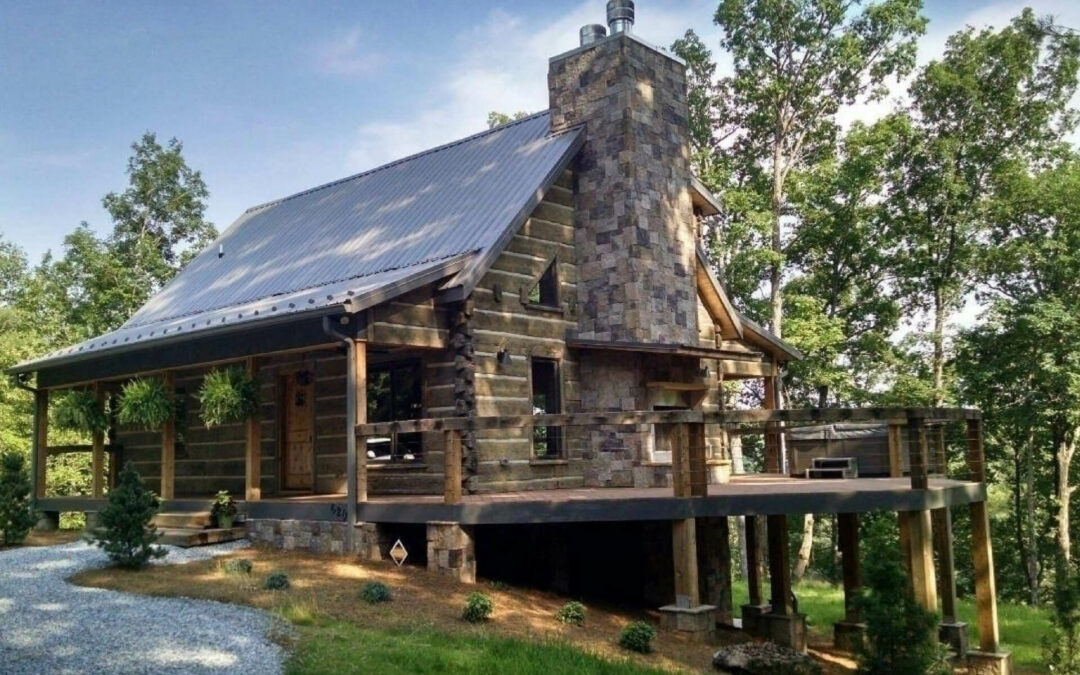Building a log cabin requires careful consideration of the materials used. The quality of the materials directly impacts the longevity, durability, and overall aesthetics of the cabin. In Raleigh, where log cabins are a popular choice for homeowners, it is essential to select the best building materials that meet both functional and aesthetic requirements.
Understanding Log Cabin Construction
The Basics of Log Cabin Building
Log cabin construction is a traditional method that involves stacking logs horizontally to create a strong and sturdy structure. The logs are carefully selected and cut to fit together tightly, creating a secure and weather-resistant cabin. This construction method has been used for centuries and is known for its rustic charm and natural beauty.
When constructing a log cabin, it’s essential to consider factors such as the type of wood used, the size and shape of the logs, and the notching technique employed. Different wood species offer varying levels of durability and resistance to decay, with cedar and cypress being popular choices for their natural resistance to insects and rot. The size and shape of the logs can impact the overall aesthetics and structural stability of the cabin, with larger, round logs providing a more traditional look and better insulation properties.
Importance of Quality Materials in Construction
Using high-quality materials in log cabin construction is crucial for ensuring the structural integrity and longevity of the cabin. Poor-quality materials can lead to issues such as rotting, settling, and increased susceptibility to weather damage. Therefore, investing in top-notch materials is a wise decision that will pay off in the long run.
Quality materials not only enhance the durability of the log cabin but also contribute to its overall aesthetic appeal. Well-maintained logs with tight-fitting joints not only improve the structural integrity of the cabin but also add to its visual charm. Additionally, quality materials can result in better energy efficiency, as tightly sealed logs provide excellent insulation, reducing heating and cooling costs throughout the year.
Types of Log Cabin Building Materials
Overview of Different Wood Types
When it comes to log cabin construction, selecting the right wood is of utmost importance. Different wood types have varying characteristics, such as strength, durability, and resistance to pests and rot. Common wood choices for log cabins include pine, cedar, and oak.
In addition to the commonly used woods, there are other lesser-known options that can add unique characteristics to a log cabin. For example, cypress is a wood known for its natural resistance to decay and insects, making it a great choice for humid climates. Another interesting option is Douglas fir, which offers a combination of strength and affordability, ideal for those looking for a balance between quality and cost-effectiveness.
Insulation Materials for Log Cabins
Insulation is a crucial component of any log cabin to ensure comfort and energy efficiency. There are various insulation materials available, such as fiberglass, foam board, and cellulose. Each material has its own advantages and disadvantages, so careful consideration must be given to the specific requirements of the cabin.
For those looking for eco-friendly insulation options, materials like sheep’s wool or recycled denim can be excellent choices. These sustainable options not only provide effective insulation but also contribute to reducing the environmental impact of the log cabin construction. Additionally, spray foam insulation is gaining popularity for its ability to create airtight seals and improve energy efficiency.
Roofing and Flooring Options
Choosing the right roofing and flooring materials is essential for protecting the log cabin from the elements and providing a comfortable interior space. Metal roofs are a popular choice due to their durability, while tile and hardwood flooring options offer a timeless and elegant look.
For a more rustic aesthetic, cedar shake roofing can add charm and character to a log cabin while providing excellent protection against the weather. In terms of flooring, reclaimed wood offers a sustainable and unique option that adds history and warmth to the interior. Additionally, engineered wood flooring provides the beauty of hardwood with added durability, making it a practical choice for high-traffic areas in the cabin.
Selecting the Right Building Materials in Raleigh
Considering Raleigh’s Climate in Material Selection
Raleigh’s climate is characterized by hot and humid summers, as well as mild winters. When choosing log cabin building materials in Raleigh, it is crucial to consider the specific climate conditions. For example, selecting wood that can withstand high moisture levels and resist pests is vital for ensuring the cabin’s durability.
Additionally, Raleigh’s climate experiences occasional heavy rainfall and strong winds, which can impact the structural integrity of a log cabin. Therefore, opting for materials that are not only moisture-resistant but also durable enough to withstand harsh weather conditions is essential for long-term sustainability.
Local Material Availability and Costs
Another factor to consider when selecting log cabin building materials in Raleigh is the availability and cost of local materials. Utilizing locally sourced materials not only supports the community but also reduces transportation costs and environmental impact. It is essential to explore local suppliers and compare prices to make an informed decision.
Furthermore, sourcing materials locally can provide access to unique wood species or finishes that are characteristic of the Raleigh region, adding a touch of authenticity and local charm to the log cabin. By incorporating locally available materials, you can create a connection between the building and its natural surroundings, enhancing the overall aesthetic appeal of the structure.
Maintenance and Durability of Building Materials
Longevity of Different Wood Types
Understanding the longevity of different wood types is crucial for maintaining a log cabin in Raleigh. Certain woods, such as cedar and oak, are known for their natural resistance to rot and pests. Regular maintenance, such as sealing and staining, can significantly extend the life of the cabin.
Protecting Your Log Cabin from Weather Damage
The weather in Raleigh can be unpredictable, with heavy rain, high humidity, and occasional storms. To protect the log cabin from weather damage, it is essential to invest in quality materials that can withstand these conditions. Applying weather-resistant coatings and ensuring proper drainage are essential maintenance tasks.
Sustainable and Eco-Friendly Building Materials
Benefits of Using Sustainable Materials
Choosing sustainable building materials for log cabin construction offers numerous benefits. Sustainable materials are typically sourced from renewable resources, resulting in reduced environmental impact. Additionally, these materials often have higher energy efficiency, lower toxicity levels, and improved indoor air quality.
Eco-Friendly Material Options for Log Cabins
Several eco-friendly material options are available for log cabin construction. Recycled or reclaimed wood can add a unique charm while reducing the demand for new timber. Additionally, using low VOC (volatile organic compound) paints and finishes can minimize environmental pollution and improve the overall indoor air quality.
Overall, selecting the best building materials is essential when building a log cabin in Raleigh. Understanding the basics of log cabin construction, considering Raleigh’s climate and local availability, and prioritizing sustainability will help you make informed decisions. By choosing high-quality materials, you can ensure the durability, longevity, and beauty of your log cabin for years to come.
Discover the Smart Alternative with Smart Logs Of The Carolinas
Ready to build a log cabin that embodies both tradition and innovation? Smart Logs Of The Carolinas offers concrete logs that provide the classic appearance of wood with unparalleled durability and eco-friendliness. Our logs are designed for both new constructions and existing structures, ensuring easy installation and low maintenance. Experience the peace of mind with fire-resistant, insect-resistant, and weather-resistant materials that are competitively priced and cost less to insure. Embrace the future of log cabin living without compromising on charm or quality. Contact Us! today to discuss how we can help you build your dream home while preserving natural resources.

